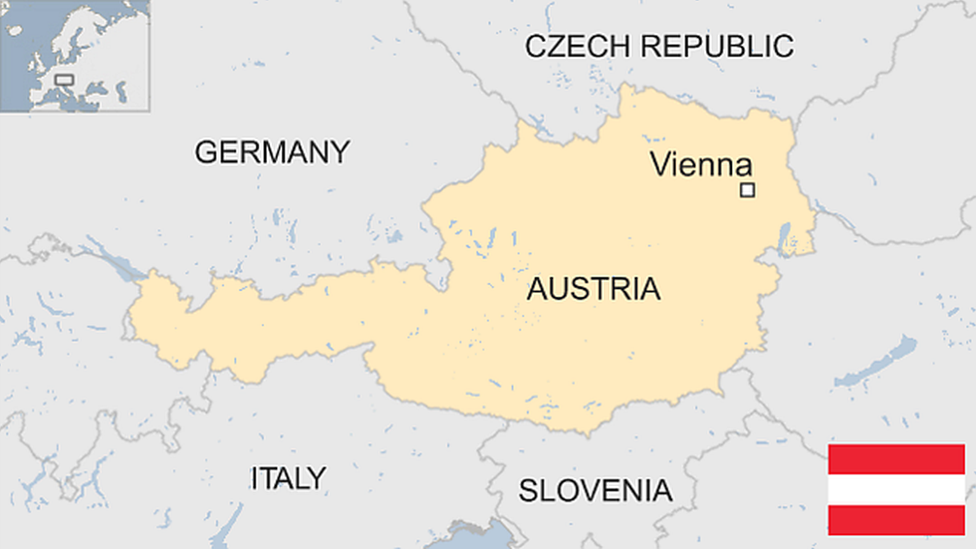Austria presidential run-off: TV debate turns to 'slugfest'
- Published
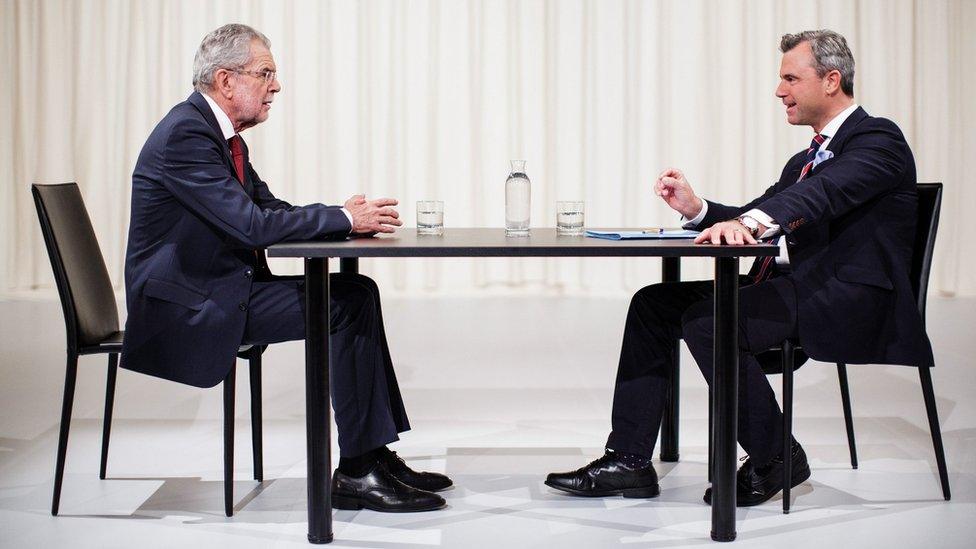
Alexander Van der Bellen (left) and Norbert Hofer faced each other on a rather sparse TV set
Just two candidates, sitting opposite each other as the cameras roll, debating the issues ahead of Austria's presidential run-off election - with no moderator or topic list. Live on Sunday night prime-time TV. What could possibly go wrong?
The presenter on private Austrian channel ATV billed the debate as an "absolute TV-experiment!" but the results might not be what the broadcaster had hoped for, as political commentators described the debate as "embarrassing", a "slugfest" and "political mud-wrestling".
So where did it all go wrong? We watched it so you don't have to.

The format
Candidates Alexander Van der Bellen, nominated by the Greens, and Norbert Hofer from the far-right Freedom Party faced off on a minimalist set; the water glasses and carafe, dark suits, plain table and countdown clock in the corner of the TV screen were reminiscent of a televised chess match from the 1970s, without the board.
There was even a gong to mark the start and end of the 45-minute debate.
The two men were introduced by a team of presenters and commentators from ATV, but there was no moderation and no agenda. The candidates themselves decided what to discuss.
The insults
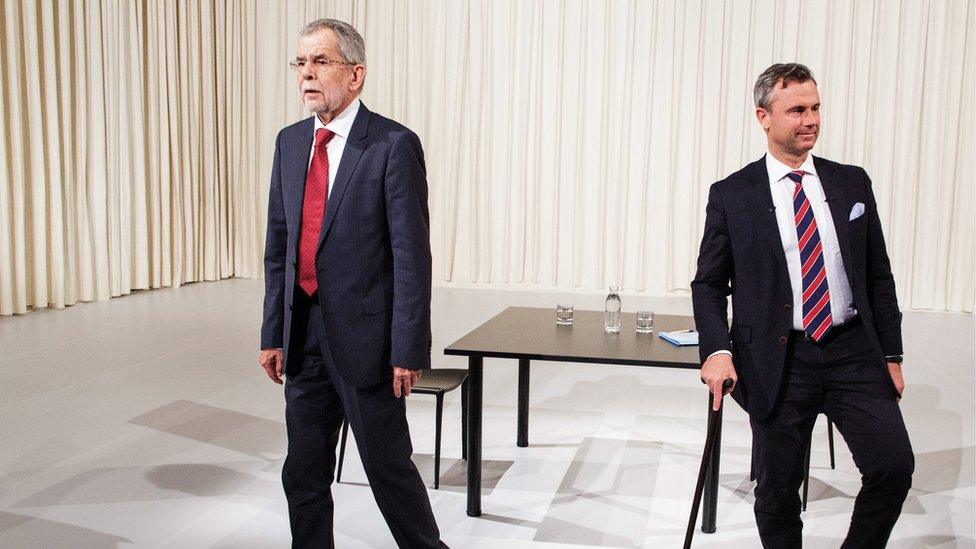
One of these two candidates will be Austria's next president
After a civilised start and a clock counting down from 45 minutes, the level of debate gradually deteriorated.
With 32 minutes to go the discussion turned to how much support their respective wives would offer.
The atmosphere seemed noticeably testier and what started as a debate degenerated into something closer to a playground scrap. With 17 minutes to go both candidates were talking over each other. It did not take long before the jibes began.

"It's my turn!" Key moments from Austrian debate
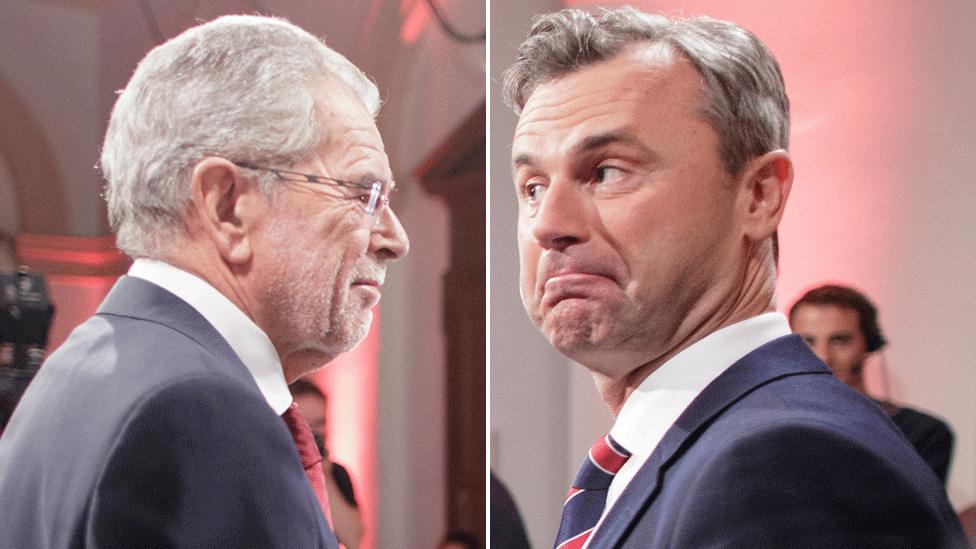
Hofer: I didn't start my candidature with a lie, like you.
Van der Bellen: That is actionable!
Hofer: You can gladly sue me.
Not long after, the far-right politician attacked Mr Van der Bellen's manner and accused him of "parroting on".
Van der Bellen: I'm talking about Europe: E-U-R-O-P-E. Never heard of it?
Hofer: My God the schoolmasterliness, Herr Doktor Van der Bellen. May I quickly say what I wanted to say before?
Van der Bellen: If it's short
Hofer: And if it's long?
Van der Bellen: When it's long then no, because it's my turn.
Mr Van der Bellen for his part repeatedly blurted out "ridiculous!" and cited a list of European political figures who, he said, supported his candidacy.
At one point he resorted to a rude hand gesture to indicate how low was his opinion of his opponent.
Mr Hofer hit back targeting the economics professor's professional experience.
Hofer: How long have you worked in the economy?
Van der Bellen: What's that got to do with anything? I can drive a car but I have never repaired one.
Hofer: Oh, you have never worked in the economy?
The far-right leader had briefly worked for Lauda Air as an engineer before turning to politics.

As the debate drew to a close, commentator Thomas Hofer (no relation, of course) summed up proceedings for ATV's viewers: "Both disgraced themselves, the office of the president is damaged, that was kindergarten level."
The verdict
Austrian newspaper Kronen Zeitung described the debate, external as "embarrassing" and said that one might well ask after this "undignified farce": "And these two want to be president?"
Meanwhile Sueddeutsche Zeitung concluded, external that "no-one emerged victorious from this political mud-wrestling".
Writing in Der Standard, external, Colette Schmidt said the knowledge gained for viewers on the factual level was zero. The format was not to blame, she said, but you have to invite people who want to talk to each other.
What's at stake
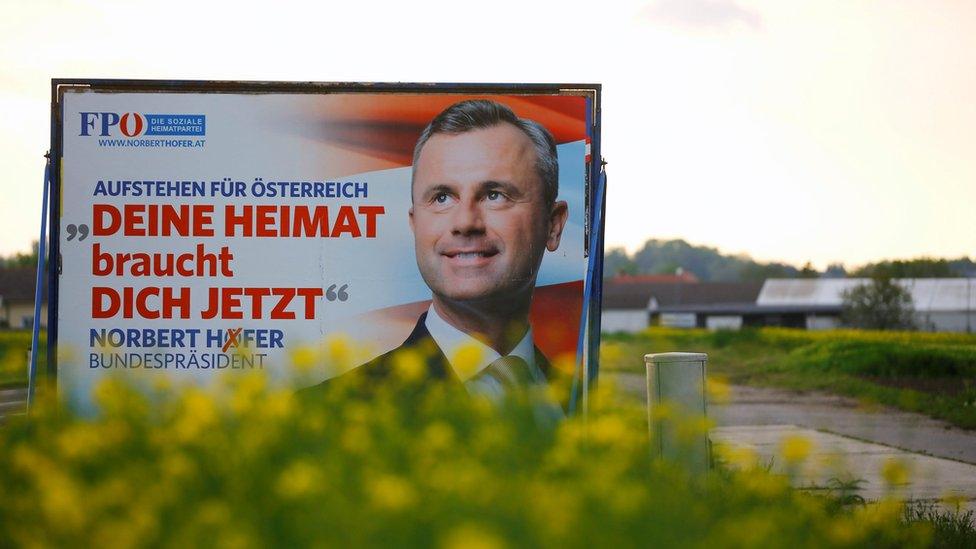
Mr Hofer defied expectations to win the first-round of the elections
Austrians vote on 22 May to choose one either Mr Hofer or Mr Van der Bellen to be their next president.
Mr Hofer was the surprise winner of the first round vote on 24 April. Mr Van der Bellen came second, meaning that for the first time since World War Two the president will not come from one of Austria's two main political parties.
While Austria's president is largely a ceremonial role in a parliamentary democracy, Mr Hofer has sparked controversy with his claim that he would, as president, use his power to dismiss the government of the day under certain circumstances.
- Published9 May 2016
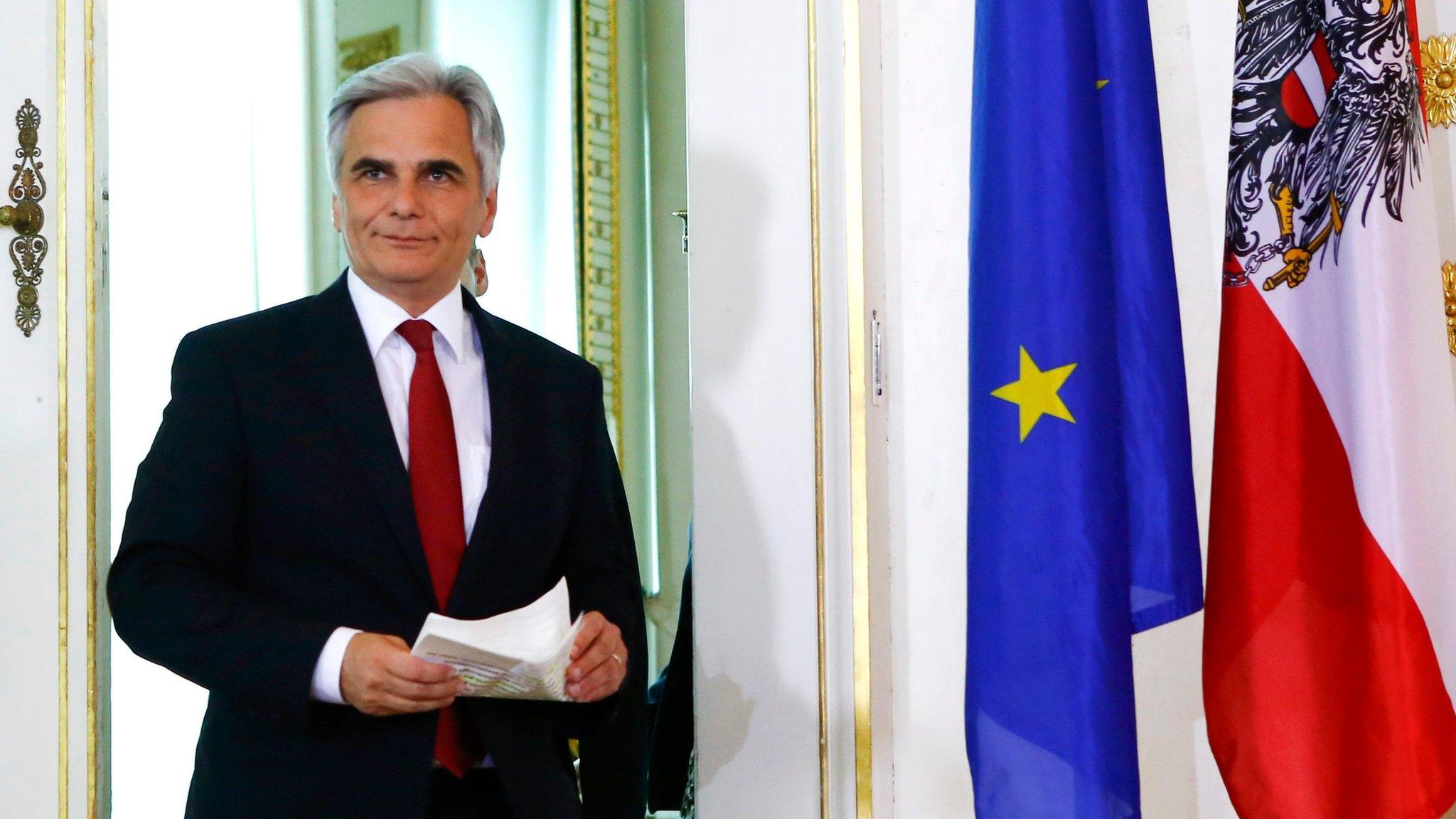
- Published24 April 2016
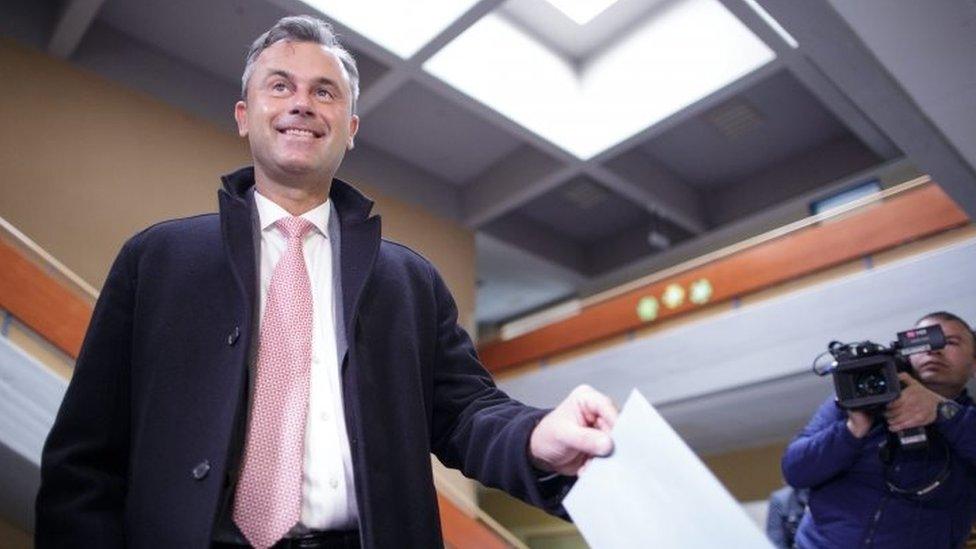
- Published28 April 2016
- Published13 November 2019
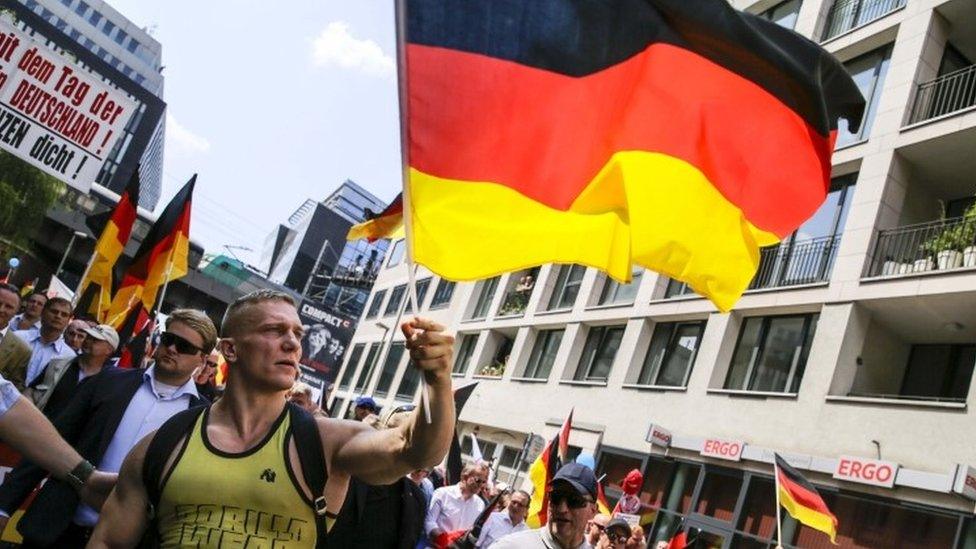
- Published14 April 2023
